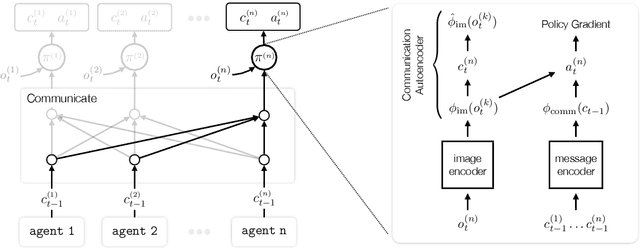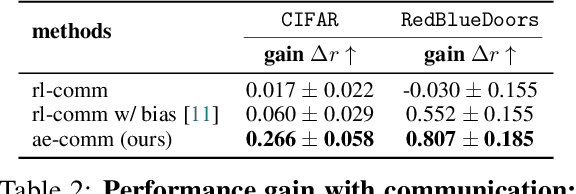Learning to Ground Multi-Agent Communication with Autoencoders
Paper and Code
Oct 28, 2021



Communication requires having a common language, a lingua franca, between agents. This language could emerge via a consensus process, but it may require many generations of trial and error. Alternatively, the lingua franca can be given by the environment, where agents ground their language in representations of the observed world. We demonstrate a simple way to ground language in learned representations, which facilitates decentralized multi-agent communication and coordination. We find that a standard representation learning algorithm -- autoencoding -- is sufficient for arriving at a grounded common language. When agents broadcast these representations, they learn to understand and respond to each other's utterances and achieve surprisingly strong task performance across a variety of multi-agent communication environments.
 Add to Chrome
Add to Chrome Add to Firefox
Add to Firefox Add to Edge
Add to Edge